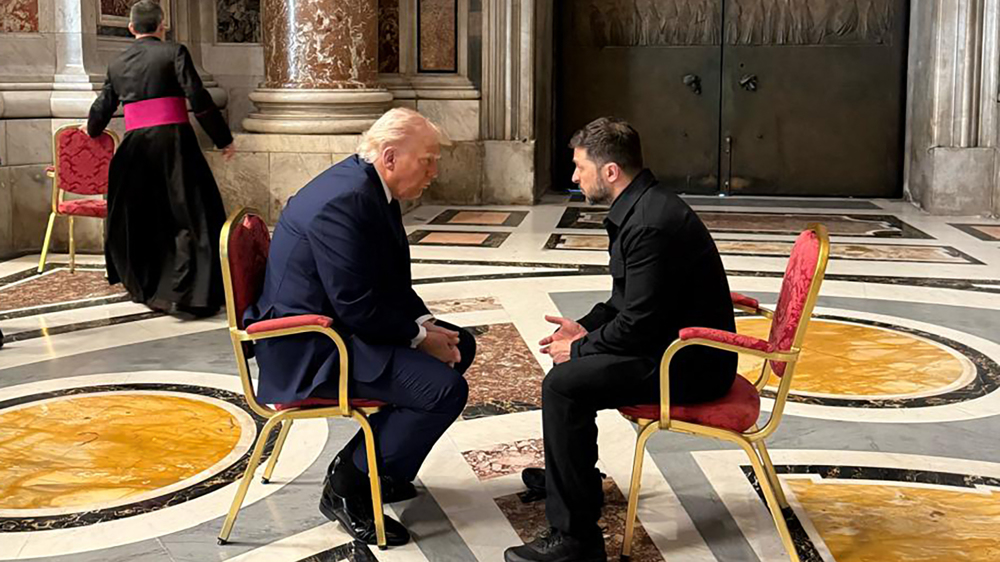US misled UK over Iraq invasion: Gordon Brown
The United States misled Britain into thinking that Iraq had weapons of mass destruction before invading the country in 2003, former UK prime minister Gordon Brown has revealed.
Brown made the explosive allegation in his new book “My Life, Our Times,” published this week, where he states that Washington deliberately withheld a secret US intelligence report into Iraq’s military capabilities from London knowing that its findings could have changed the course of events.
“It is astonishing that none of us in the British government ever saw this American report,” Brown writes.
The former premier claims that as Chancellor of the Exchequer, he had greater access to secrets than the rest of the cabinet ministers, but he was reassured by the UK intelligence agency MI6 that evidence about former Iraqi dictator Saddam Hussein’s WMDs was well-founded.
However, having reviewed the evidence since leaving office, he writes that he now believes “we were all misled on the existence of WMDs”.
“It is astonishing that none of us in the British government ever saw this American report,” Brown writes.
“It is now clear how forcibly this report challenged the official view: ‘We’ve struggled to estimate the unknown … We range from 0 percent to about 75 percent knowledge on various aspects of their [Iraq’s WMD] program.”
He says Washington had clearly based all of its claims about Iraq’s nuclear weapons on “assessments” that relied on “analytic assumptions and judgment rather than hard evidence.”
It was the same story with chemical agents and Iraqi missiles that could allegedly reach Britain but were never found.
“This highly confidential US evidence was a refutation not only of the claim that Iraq was producing WMDs but also of their current capability to do so,” the former PM continued.
Admitting that Saddam’s failure to comply with United Nations resolutions was reason enough for international action against him, Brown still wonders if the invasion and occupation of Iraq was justified.
“Given that Iraq had no usable chemical, biological or nuclear weapons that it could deploy and was not about to attack the coalition, then two tests of a just war were not met: war could not be justified as a last resort and invasion cannot now be seen as a proportionate response,” he writes.
Brown adds that the US report was never taken into account by the so-called Chilcot inquiry into Britain’s role in the 2003 US-led invasion of Iraq.
Conducted by Sir John Chilcot, the inquiry took seven years to conclude that then British prime minister Tony Blair chose to join the invasion before “peaceful options for disarmament” had been exhausted.

Trump’s tariffs spark fears of price hikes, product shortages in US: Report

Trump, Zelensky hold 'productive' talks ahead of Pope's funeral in Rome

Betar US: America's new face of Zionist terrorism and the darker rebirth of Kahanism
Israel and its arms suppliers ‘must be stopped,’ UN says
Putin orders emergency planes to Iran after blast at port of Bandar Abbas
Pezeshkian arrives at port blast site to monitor response operations
VIDEO | Press TV's news headlines
Betar US: America's new face of Zionist terrorism and the darker rebirth of Kahanism
‘More serious than before’: Iran-US talks enter critical phase amid hope and caution
Pezeshkian’s visit to Baku heralds new order in South Caucasus
VIDEO | Eight killed, six injured after car rams into crowd at Vancouver Filipino festival









 This makes it easy to access the Press TV website
This makes it easy to access the Press TV website